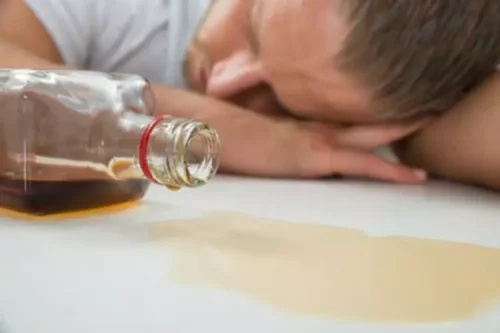
The simple answer is that every addiction, though caused by substance abuse, is unique and is affected by many factors. For example, some people may ask how long rehab lasts due to the difference in the recovery rate of patients. Rehab stays can go up to a year or more, depending on the type of program you join. This is especially true for those in long-term programs or receiving some kind of specialized care. For people who have struggled for years with severe addiction and chronic relapse, a https://ecosoberhouse.com/ long stay can help build a foundation for a real, lasting recovery – the kind of recovery people want.
- More severe conditions typically require longer inpatient stays to ensure thorough treatment and recovery.
- Along the way, your response to the medication needs to be monitored to determine if that medication is the right option and at the right dosage.
- Outpatient remedy packages, however, offer flexibility, allowing individuals to live at home while attending remedy periods and scientific appointments.
- An overdose happens when the person uses enough of a drug to produce uncomfortable feelings, life-threatening symptoms, or death.
- The flexibility of a man or woman’s individual treatment program allows for modifications based on the patient’s development and evolving wishes.
How Much Does Outpatient Rehab Cost?

In such programs, your care doesn’t end the day you leave the rehab facility – the support is continuous, and thus more effective. People are also often encouraged to connect with a mutual aid fellowship such as a 12-step program or SMART Recovery. When you’re first deciding on whether to go to alcohol/drug rehab, 30 days could seem like a doable option.
How Long Does Alcohol Rehab Take?
However, experts recommend that people stay in treatment for at least three months to ensure the best outcomes. Any of these individuals can and should attend family programs when possible. The only true requirement for attending these programs is a desire to understand addiction’s impact on family members and the addicted person.
Withdrawal Management
- This level addresses the underlying psychological troubles related to drug addiction, making use of numerous healing strategies.
- People frequently come into addiction treatment with very poor nutrition, little to no physical activity, bad sleep habits, hygiene issues, and so on.
- Depression is a good example of a co-occurring condition you need to get a handle on in treatment.
- This tailored approach ensures meticulous planning and execution of every aspect of your recovery journey, substantially increasing long-term success likelihood.
- The length of stay can also be determined by how much time you need in detox and individual and group therapy, as well as how long you participate in aftercare services.
- We believe that recovery is a journey, and we will be there with you every step of the way.
• Empowerment—finding the wherewithal to cope with recovery and the challenges of life, which breeds a sense of self-efficacy. Saying a mantra, substituting thoughts of recovery goals, praying, reading something recovery-related, reaching out to someone supportive—all are useful tactics. Planning in advance a way out of high-risk situations—whether an event, a place, or a person—helps support intentions in the face of triggers to use.
Drug and Alcohol Rehab Testimonials
From the severity of the dependency to the type of treatment program chosen, each element performs a sizable function in shaping the recovery timeline. In this article, we discover the elements that affect the length of addiction treatment and offer insights into the unique stages of the rehabilitation procedure. The period marijuana addiction of drug rehabilitation can range widely, reflecting the complexities of addiction treatment. Understanding how lengthy rehabilitation takes is essential for placing practical expectations and getting ready for the adventure beforehand.
Rehab duration for specific substances

Medicare and Medicaid may cover part or all of your substance abuse treatment costs. For more information on available rehab options, contact a treatment provider today. Upon successful completion of court-ordered rehab, the judge and court team discuss the next phase of the process. What happens after depends on the original agreement and terms of the arrangement. A team of professionals assigned to each court-ordered rehab participant, including probation officers, attorneys, and treatment staff, regularly discuss how the person is progressing. Ongoing participation in a recovery how long is drug rehab program, such as a12-step programorSMART Recovery, is crucial for ongoing recovery.


When choosing between short-term or long-term rehabilitation, it’s not always easy to decide. It depends on many factors including the severity of dependence, comorbidity with other disorders, and the level of support a patient has after leaving the program. Other factors are financial resources, family obligations, and work obligations that might prevent someone from being able to stay longer at a program. The longer the treatment, the more time an individual has to practice the skills they are learning in therapy sessions.
